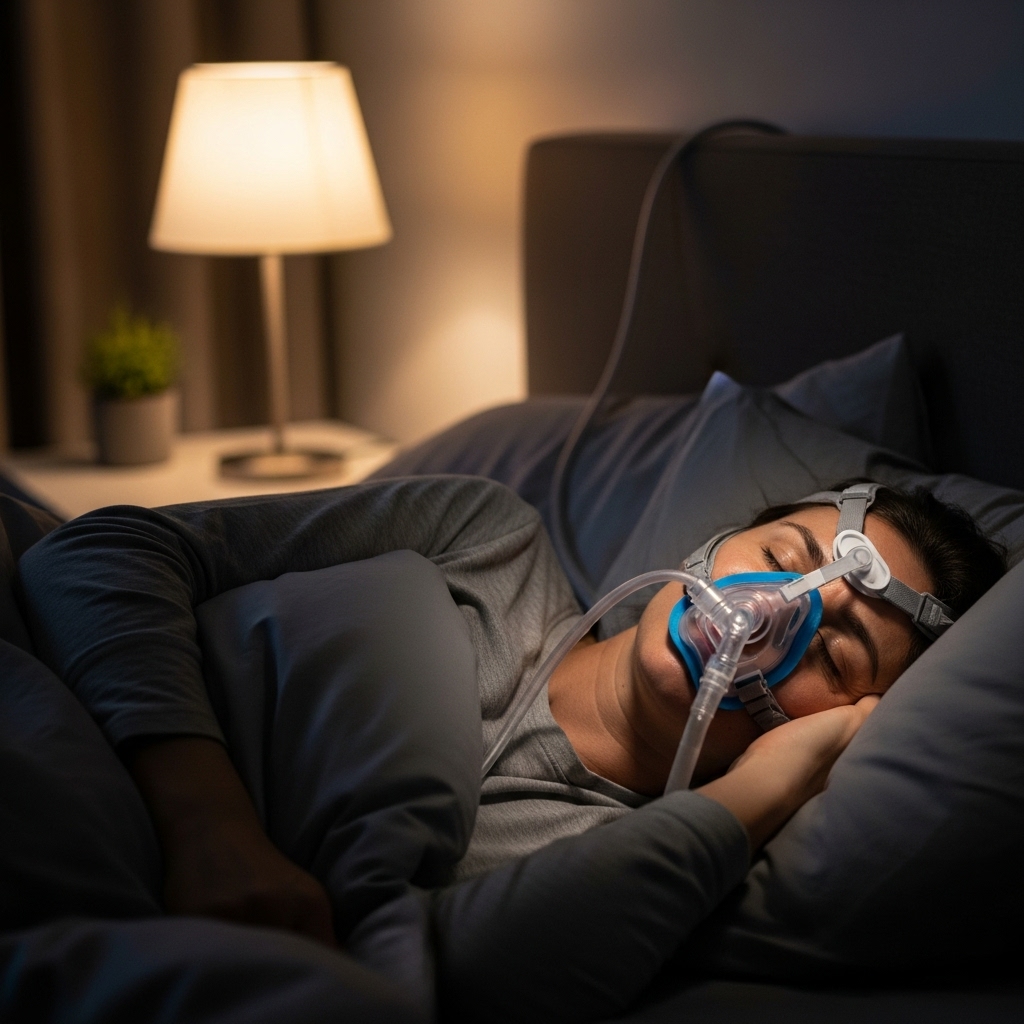
Understanding CPAP Therapy for Sleep Apnea
When it comes to treating obstructive sleep apnea, CPAP (Continuous Positive Airway Pressure) remains one of the most effective options available. However, before starting treatment, it’s important to understand the CPAP therapy pros and cons to determine if it’s the right fit for you.
CPAP for sleep apnea works by delivering a constant stream of pressurized air through a mask, keeping the airway open during sleep. This prevents pauses in breathing, reduces snoring, and improves oxygen levels throughout the night.
How CPAP Works
Understanding how CPAP works is key to deciding whether it aligns with your comfort and treatment goals. A CPAP machine consists of a motor, tubing, and a mask that covers the nose, mouth, or both. The machine pushes air into the airway at a pressure level prescribed by your sleep specialist, ensuring uninterrupted breathing during sleep.
The result is better rest, reduced daytime fatigue, and a lower risk of health complications linked to untreated sleep apnea.
CPAP Therapy Pros and Cons
Like any medical treatment, there are CPAP therapy pros and cons to consider.
Benefits of CPAP Machine:
- Effective treatment – Significantly reduces apnea episodes.
- Improved sleep quality – Restorative rest for both the patient and their partner.
- Better overall health – Lowers risk of complications like high blood pressure, heart disease, and stroke.
- Reduced daytime symptoms – Less fatigue, better concentration, and improved mood.
CPAP Side Effects:
- Mask discomfort – Some patients experience irritation or pressure marks.
- Dryness or nasal congestion – Airflow can cause dryness in the mouth or nasal passages.
- Adjustment period – Getting used to sleeping with the machine may take time.
- Noise – Although modern machines are quieter, some patients still notice sound.
Balancing these factors with your lifestyle and comfort is important in deciding if CPAP is the best treatment for you.
Alternatives to CPAP
For patients who struggle with CPAP compliance, there are alternatives to CPAP that may be effective. Options include:
- Oral appliance therapy – Custom mandibular devices that reposition the jaw to keep the airway open.
- Positional therapy – Techniques or devices to encourage side‑sleeping and reduce airway collapse.
- Surgical interventions – Procedures to remove or modify tissue in the airway.
A sleep specialist can evaluate which treatment is best based on your medical history, severity of sleep apnea, and personal preferences.
Final Thoughts on CPAP Therapy Pros and Cons
Understanding the CPAP therapy pros and cons helps you make an informed decision about your treatment for sleep apnea. While CPAP remains the gold standard for many patients, comfort and compliance are key to success.
Exploring alternatives to CPAP with your sleep specialist ensures that you find the most effective solution for your needs.
FAQ About CPAP Therapy
1. What are the main benefits of CPAP machine use?
The benefits of CPAP machines include reduced apnea events, improved sleep quality, increased energy, and better cardiovascular health.
2. What are common CPAP side effects?
Typical CPAP side effects include mask discomfort, nasal dryness, congestion, and an adjustment period for sleeping with the machine.
3. Are there alternatives to CPAP?
Yes. Alternatives to CPAP include oral appliance therapy, positional therapy, and certain surgical treatments.
4. How does CPAP work?
How CPAP works: It delivers a steady flow of air through a mask to keep your airway open while you sleep.
5. Is CPAP for sleep apnea the best treatment?
CPAP for sleep apnea is considered the most effective treatment for moderate to severe cases, but alternatives exist for patients who cannot tolerate it.
